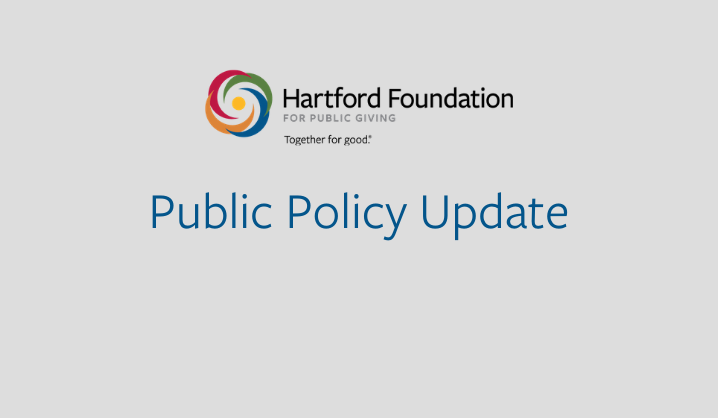New & Noteworthy

Hartford Foundation Submits Testimony in Support of Senate Bill 753 An Act Concerning the Counting of Incarcerated Persons for Purposes of Determining Legislative Districts
Read the Foundation's Testimony
On Wednesday, March 10, the Hartford Foundation submitted testimony in support of Senate Bill 753, An Act Concerning the Counting of Incarcerated Persons for Purposes of Determining Legislative Districts.
As part of our efforts to dismantle structural racism and improve social and economic mobility for Black and Latinx residents of Greater Hartford, the Hartford Foundation invests in programs and systems-building to provide education, job training and other support services to returning citizens to support their success and prevent reincarceration.
Since 2007, the Hartford Foundation has funded critical reentry supports to help returning citizens succeed, including pre-employment training and job placement and retention assistance. In December 2017, the Hartford Foundation provided a three-year, $450,000 grant to Community Partners in Action, in collaboration with other nonprofits and government partners, to launch the Greater Hartford Reentry Welcome Center. The City of Hartford committed in-kind resources, including the Center’s space in Hartford City Hall, located on 550 Main Street, and staff time to provide additional support. This public-private partnership has been working to change the course of the lives of men and women returning home from prison at the end of their sentences.
Our effort to end structural racism also includes support of civic and resident engagement in our region. Promoting community voice and leadership is a priority for the Hartford Foundation, one that runs throughout each of our strategic priorities. Our commitment to civic engagement may take the form of voting, participating in local government, volunteering or sharing ideas on how resources could be used to make our community a better place. Resident engagement efforts seek to develop resident leadership and opportunities for collective action on issues affecting their communities. The Foundation believes that it is vital that policy decisions are informed by a diverse group of residents who are impacted by the actions at City Hall and the State Capitol. In doing this work, we hope to enhance inclusive opportunities for residents of our region to create positive change.
In 2019, the Hartford Foundation awarded 20 grants totaling $448,400 over eighteen months to support voter engagement in 2019 and 2020 and Census participation activities. This past summer, amidst COVID restriction requirements, the Foundation provided additional grants to five organizations to provide additional support for socially distanced civic engagement and voter engagement activities.
The Hartford Foundation endorses Senate Bill 753, which would provide for the adjustment of population data so as to count incarcerated persons as residents of their last town of residence rather than as residents of the town in which the correctional facility is located when determining legislative districts. We know that most Connecticut state prisoners come from urban communities with large black and Latino populations, but are imprisoned in rural, mostly white communities. Including incarcerated individuals in the counts of their hometowns will ensure that these communities have more equitable representation in the legislature.
While it would be preferable for the U.S. Census Bureau to change how it counts incarcerated people, counting them as residents of their hometown rather than prison addresses, Connecticut can join an increasing number of states, including New York and New Jersey, that are changing how they use data published by the Census Bureau when drawing legislative districts.
This legislation would enact two recommendations from the Prison Policy Initiative’s Prison Gerrymandering project. The first is to standardize the collection of home address information when people enter the custody of the Department of Correction. Eventually this will create a complete dataset of home address information for use in future redistricting or for use by the Census Bureau.
The second part of the bill would direct the state to count individuals living in correctional facilities as living as "addresses unknown" and only counted at-large rather than in any specific geography in the data used for redistricting, except where home address data exists. A state agency can adjust the Census Bureau's redistricting data to reflect those people being counted at home. This solution would effectively eliminate much of the electoral harm caused by prison gerrymandering and would ensure that everyone is counted in the correct location in the next Census.
